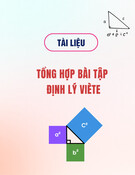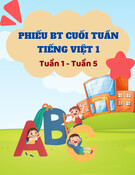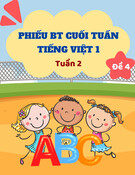
UBND QUẬN HÀ ĐÔNG
Trường THCS Dương Nội
ĐỀ CƯƠNG ÔN TẬP GIỮA KỲ II
Năm học: 2022 - 2023
Môn: Tiếng Anh 8
UNIT 7: POLLUTION
*. NGỮ PHÁP:
I. CONDITIONAL SENTENCES - TYPE 1(CÂU ĐIỀU KIỆN LOẠI 1)
1. Khái niệm câu điều kiện loại I.
Câu điều kiện loại I còn được gọi là câu điều kiện có thực ở hiện tại. Điều kiện có
thể xảy ra ở hiện tại hoặc tương lai.
2. Cấu trúc – Công thức của câu điều kiện
If clause Main clause
If + S + V s(es)... S + will / can/ may + V1 (won't/can't + VI)
3. Cách dùng câu điều kiện loại 1:
Câu điều kiện loại 1 còn có thể được gọi là câu điều kiện hiện tại có thể có thật. Ta sử dụng
câu điều kiện loại 1 để đặt ra một điều kiện có thể thực hiện được trong hiện tại và nêu kết
quả có thể xảy ra.
Ví dụ:
II. CONDITIONAL SENTENCES - TYPE 2(CÂU ĐIỀU KIỆN LOẠI 2)
Câu điều kiện loại II là câu điều kiện không có thực ở hiện tại.
1. Cấu trúc:
If + S + V (QKĐ), S + would/ could (not) + V.
2. Cách dùng:
Câu điều kiện loại 2 Chỉ sự việc không thể hoặc khó có thể xảy ra ở hiện tại hoặc
tương lai.
Ví dụ:
If I were you, I would go abroad.
(Nếu tôi là bạn, tôi sẽ đi nước ngoài)
Diễn tả hành động “không có thật” ở “hiện tại” hoặc “tương lai”
Ví dụ:
It isn't cold now so I switch on the fans
=> If it were cold now, we wouldn't switch on the fans.
(Nếu trời lạnh, chúng tôi sẽ không bật quạt)
=> Hiện tại trời không lạnh nên chúng tôi bật quạt hoặc nếu tương lai xảy ra thì cũng
vậy.
*. BÀI TẬP:
I. Choose the words whose underlined part is pronounced differently from that of the
others in each group.
1. A. measure B. leather C. mean D. feather
2. A. treatment B. earplug C. hearing D. fear
3. A. poison B. visual C. measure D. pleasure
4. A. thermal B. litter C. permanent D. service

5. A. affect B. cholera C. pollutant D. radiation
6. A. artistic B. academic C. catholic D. dramatic
7. A. energetic B. majestic C. emphatic D. pathetic
8. A. critical B. logical C. medical D. biological
9. A. chemical B. brochure C. mechanical D. orchid
10. A. poison B. visual C. measure D. pleasure
II. Choose the word whose main stressed syllable is placed differently from that of the
other in each group.
1. A. repetitive B. electrical C. priority D. energetic
2. A. national B. physical C. arrival D. natural
3. A. medical B. national C. chemical D. informal
4. A. dramatic B. tornado C. historic D. injury
5. A. aquatic B. problematic C. influential D. degradable
6. A. conical B. practical C. musical D. mechanic
7. A. electric B. historic C. classical D. botanic
8. A. botanical B. dialectical C. economic D. alphabetic
9. A. chemical B. artistic C. medical D. physical
10. A. scientific B. fantastic C. majestic D. domestic
III. Choose the best answer to complete each of the following sentences.
1. If I were you, I _____________ for a new car to buy.
A. would look B. will look C. look D. looking
2. If Jenny _____________ ill, she would go out with us.
A. isn't B. aren't C. wasn't D. not been
3. If there _____________ fewer cars on the road, there would be less accident.
A. is B. were C. are D. be
4. If people really cared about environment, they _____________ waste into rivers.
A. didn't dump B. don't dump C. shan't dump D. wouldn't dump
5. You _____________ so tired if you went to bed earlier.
A. won't be B shan't be C. couldn't be D. wouldn't be
6. If you really _____________ me, you would buy me a diamond ring.
A. loved B. love C. loves D. loving
7. If I knew where she lived, I _____________ and see her.
A. will go B. would go C. should go D. went
8. If I _____________ taller, I would buy this dress.
A. am B. are C. were D. being
9. Filters do not remove all _____________ from water.
A. contaminate B. contaminants C. contaminating D. contamination
10. _____________ is found under the ground in soil, rocks, etc.
A. sea water B. salt water C. groundwater D. hot water
IV. Put the verbs into the correct forms.
1. If people (be) _____________ fully aware of the dangers of air pollution, they (damage)
_____________ the atmosphere this way.

2. If I (be) _____________ you, I (turn) _____________ the volume down for him to sleep.
3. We (not be) _____________ able to drink that water if it is not refined.
4. If you (reduce) _____________ the number of bulbs in your house, you (pay)
_____________ less money for the electricity bill next month.
5. If many animals and plants die, it (unbalance) _____________ our ecosystem.
6. I’ll only stay if you (offer) _____________ me more money.
7. If anyone (call) _____________, tell them I'm not at home.
8. If he (improve) _____________ his IT skills, he'd easily get a job.
9. If I was in charge, I (do) _____________ things differently.
V. Read the passage and choose the best answer (A, B, C or D).
There are three main (1) ……………… of pollution: air pollution, water pollution and
noise pollution. Air, which is the most important element of our environment for our (2)
……………………, can be polluted in many ways. Smoke in the air from mills, factories
and industry (3) …………………… carbon, monoxide, carbon dioxide, and methane,
which are all poisonous gases. This leads (4) …………………… health problems like
asthma and lung diseases, and the thinning of the ozone layer, which (5)
……………………us from harmful UV ray. China, the USA, Russia, India, Mexico and
Japan are the world leaders in air pollution (6) ……………………Water is also polluted by
the discharge of commercial and industrial waste. Sewage in drinking water is another (7)
……………………of water pollution as it contains germs and viruses. The noise of
vehicles, mills, and factories can be really unbearable. This kind of constant sound also (8)
………………headaches, tension, (9) ……..………… stress and migraines. People living
next to a building site where there is too much noise can become sick, as they cannot sleep
or relax. This is (10)……………………noise pollution.
1. A. types B. kinds C. models D. both A & B
2. A. survival B. survive C. surviving D. survived
3. A. includes B. include C. contains D. contain
4. A. in B. into C. to D. from
5. A. prevents B. protects C. avoids D. hides
6. A. emissions B. emitted C. emission D. emitting
7. A. effect B. cause C. result D. consequence
8. A. causes B. leads to C. results in D. all are correct
9. A. brain B. mind C. head D. mental
10. A. told B. called C. said D. mentioned
VI. Rewrite the following sentences based on the given words.
1. People don’t care much about environment, so they keep making it worse.
→ If people ____________________________________________________
2. She suffered from a serious disease because of drinking contaminated water in a long
time.
→ Since________________________________________________________
3. The drainage system is damaged. There is not enough water for the crop.
→ If the drainage system_____________________________________________

4. “Why don’t you turn off more lights in the house to reduce your eyestrain?”
→ If I __________________________________________________________
5. The improvements of the public transport system will encourage more people to use it.
→ If____________________________________________________________
6. The soil is poisoned because farmers use too many pesticides and herbicides.
If _________________________________________________________________.
7. What will they do to prevent natural disasters?
What will__________________________________________________________?
VII. Use the given words to write the complete conditional sentences type 2.
1. If/I/ be/ you/I/ eat/ more vegetable.
____________________________________________________________________
2. More/ foreign tourist/ come/ here/ if/ environment/ clean.
____________________________________________________________________
3. What/ happen/ if/ there/ be/ no woman/ world?
____________________________________________________________________
4. If/I/ be/ his father/I/ ask/ him/ learn English/ better.
____________________________________________________________________
5. If/ there/ be/ no war/ earth/ people/ live/ peace/ forever.
____________________________________________________________________
UNIT 8: ENGLISH SPEAKING COUNTRIES
*. NGỮ PHÁP:
THE PRESENT TENSES IN ENGLISH
(CÁC THÌ HIỆN TẠI TRONG TIẾNG ANH)
1. The present simple tense (Thì hiện tại đơn)
Công thức:
Dạng khẳng định S + V (e/ es)
Dạng phủ phủ
định S + don't/ doesn't + V-infinitive
Dạng nghi vấn Do/ doess + S + V -infinitive ?
Cách nhận biết:
Often = usually = frequently, always = constantly, sometimes = occasionally, seldom =
rarely, everyday/ week/ month.............
2. The present continuous tense (Thì hiện tại tiếp diễn)
Công thức:
Dạng khẳng
định S + AM/ IS/ ARE +V- ing
Dạng phủ định S + AM/ IS/ ARE + NOT + V- ing
Dạng nghi vấn AM/ IS/ ARE + S +V ing ?
3. The present perfect tense (Thì hiện tại hoàn thành)

Cấu trúc:
Dạng khẳng định S + have/ has + PII
Dạng phủ định S + have/ has + not + PII
Dạng nghi vấn have/ has + S+ PII
Cách dùng:
- Thì hiện tại hoàn thành diễn tả hành động vừa mới xảy ra, vừa mới kết thúc, thường đi với
trạng từ “just”
Ví dụ:
We have just bought a new car.
(Chúng tôi vừa mua ô tô mới.)
- Thì hiện tại hoàn thành diễn tả một hành động bắt đầu từ quá khứ, còn kéo dài đến hiện tại
và có khả năng tiếp tục ở tương lai.
Ví dụ:
You have studied English for five years.
(Bạn đã học tiếng Anh được 5 năm.)
Dấu hiệu nhận biết:
Just, recently, lately: gần đây, vừa mới
Ever: đã từng
Never : chưa bao giờ
Already: rồi
Yet: chưa (dùng trong câu phủ định và nghi vấn)
Since: từ khi( chỉ thời điểm mà hành động bắt đầu)
For: khoảng(chỉ khoảng thời gian của hành động )
So far =until now =up to now =up to the present: cho đến nay, cho đến tận bây giờ ...
4. Hiện tại hoàn thành tiếp diễn
Công thức:
Dạng khẳng định S + have been + Ving.
Dạng phủ định S + have + not + been + Ving.
Dạng nghi vấn have + S + been + V-ing ?
Cách dùng:
Sử dụng tương tự như hiện tại hoàn thành. Nhưng hiện tại hoàn thành tiếp diễn muốn nhấn
mạnh tính liên tục của hành động.
Ví dụ :
You have been learning English for 5 years.
(Bạn đang học tiếng anh được 5 năm rồi.)
5. Present simple for future (Hiện tại đơn dùng trong tương lai)
Chúng ta dùng thì hiện tại đơn với hàm nghĩa ở tương lai khi:
Nói về lịch làm việc, thời gian biểu... (chẳng hạn như giao thông công cộng, lịch
phim...)
Ví dụ:
The train leaves Plymouth at 11.30 and arrives in London at 14.45.
(Đoàn tàu sẽ rời Plymouth lúc 11h30 và sẽ đến Luân đôn lúc 14h45.)
What time does the film begin?
(Phim sẽ bắt đầu lúc mấy giờ?)
It’s Wednesday tomorrow.
(Ngày mai là thứ tư.)




![Bài tập so sánh hơn và so sánh nhất của tính từ [kèm đáp án/mới nhất]](https://cdn.tailieu.vn/images/document/thumbnail/2025/20250808/nhatlinhluong27@gmail.com/135x160/77671754900604.jpg)
![Tài liệu tham khảo Tiếng Anh lớp 8 [mới nhất/hay nhất/chuẩn nhất]](https://cdn.tailieu.vn/images/document/thumbnail/2025/20250806/anhvan.knndl.htc@gmail.com/135x160/54311754535084.jpg)




![Tài liệu Lý thuyết và Bài tập Tiếng Anh lớp 6 [Mới nhất]](https://cdn.tailieu.vn/images/document/thumbnail/2025/20250802/hoihoangdang@gmail.com/135x160/18041754292798.jpg)





